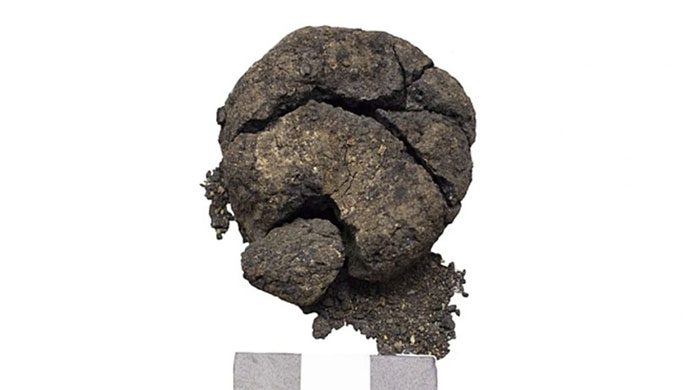At the famous archaeological site of Çatalhöyük in Turkey, researchers made a surprising discovery: an ancient preserved loaf of bread.
This site is recognized as one of the earliest known urban settlement areas in the world, dating back to the Neolithic period.
Through artifact dating analysis, archaeologists confirmed that the loaf of bread was made approximately 8,600 years ago – making it the oldest known bread to date.
Microscopic studies of its composition revealed the presence of barley, wheat, and crushed peas. This confirmed that it is indeed a loaf of bread.
“This is considered the oldest loaf of bread in the world. Based on our observations, analyses, and dating, we estimate that this organic residue is around 8,600 years old,” the research team stated.
Was the loaf of bread seemingly not baked?
It was remarkably preserved and appears that the bread has yet to be baked, despite its current charred appearance.
Upon examining the artifact, the archaeological team suggested that this is a block of fermented dough that has been discarded over time. They even identified the imprint of a finger in the center of the loaf, indicating that the Neolithic baker may have wanted to test the dough’s rise.
So what happened to this loaf of bread? Although it was ready to be baked, it was left behind. These questions may never have answers.
The Çatalhöyük archaeological site was discovered in 1951 and is an extraordinary preservation area filled with ancient artifacts such as eating utensils, stone tools, ceramics, and figurines.

The recently excavated loaf of bread in Turkey dates back 8,600 years. (Photo: GreekReporter).
Notably, the remnants of textile production were found within the Neolithic houses.
Scientists noted that in the early years of excavation, the world’s first textiles were also discovered here.
They assessed that this industry contributed to the development of Çatalhöyük, which became a city by the end of the 8th century BCE, housing around 8,000 residents.


















































